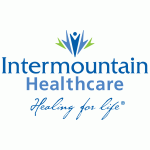Salt Lake City, UT -- (ReleaseWire) -- 10/15/2019 -- Intermountain Healthcare facilities treated 60 people after a Provo meetinghouse of The Church of Jesus Christ of Latter-day Saints was evacuated Sunday, October 13, 2019, due to carbon monoxide. Twenty-four of those patients received hyperbaric treatment at either Intermountain Utah Valley Hospital, Intermountain Medical Center, or Intermountain LDS Hospital.
Dr. Lindell Weaver, medical director of the Hyperbaric Medicine Center at Intermountain Medical Center and LDS Hospital, says as temperatures drop Utahns need to protect themselves and their families from this deadly gas.
Carbon monoxide (CO) is colorless, odorless, tasteless, and a poisonous gas. Because it is virtually undetectable by humans, it's dubbed the silent killer. In the United States, it is the number one cause of death by poisoning.
CO is often produced from a faulty furnace or other heating sources inside the home. Exposures to CO also comes from automobile exhaust, small gas engines, and other fuel operated machines being used in poorly ventilated spaces.
"Carbon monoxide poisoning symptoms are similar to the flu – nausea, tiredness, aches, and pains," says Dr. Weaver. "If you suspect you have been exposed to high levels of carbon monoxide you should leave immediately and seek help."
At the Hyperbaric Oxygen Therapy Department, patients with carbon monoxide poisoning are treated with high-flow oxygen, sometimes in a special room or capsule called a hyperbaric oxygen chamber, to reduce the chance of permanent brain damage.
Unfortunately, once poisoned, individuals may run the risk of permanent brain or cardiac injury. Treatment for carbon monoxide poisoning reduces this risk, but even with prompt oxygen therapy, disability can still occur. Therefore, thinking about carbon monoxide and how to prevent and avoid it is important.
There are several steps you can take to reduce your risk of exposure:
Schedule an annual check-up for your furnace and hot water heater. It's important to have all gas-fired furnaces and hot water heaters checked by heating and air conditioning (HVAC) professionals annually. Furnaces can crack and become obstructed.
Every home and business should have a carbon monoxide alarm. Carbon monoxide alarms should meet the UL2034 standard. Alarms with a digital display add an additional level of protection. It's possible for carbon monoxide to be present in levels that will show on the digital display but lower than the level necessary to trigger an alarm.
If your digital carbon monoxide alarm detects even a low level of gas, have the area checked by the gas company or an HVAC specialist.
Replace your carbon monoxide alarm every five years and consider bringing one along when you travel. Carbon monoxide alarms designed to sound at lower than that of residential alarms are available at www.coexperts.com.
Be aware of symptoms. Carbon monoxide poisoning can be lethal, sometimes with no advance sign of trouble. This is especially true when people are exposed during their sleep and are unaware or unable to call for help.
About Intermountain Healthcare
Intermountain Healthcare is a not-for-profit system of 24 hospitals, 215 clinics, a Medical Group with 2,500 employed physicians and advanced practice clinicians, a health insurance company called SelectHealth, and other health services in Idaho, Utah, and Nevada. Intermountain is widely recognized as a leader in transforming healthcare by using evidence-based best practices to consistently deliver high-quality outcomes and sustainable costs. For more information, see intermountainhealthcare.org.
For more information on this press release visit: http://www.releasewire.com/press-releases/intermountain-healthcare-treats-60-people-for-carbon-monoxide-poisoning-officials-issue-a-warning-to-utahns-as-temperatures-drop-1262765.htm
Media Relations ContactErin Goff
Media Relations Manager
Intermountain Healthcare
Telephone: 1-801-376-8157
Email: Click to Email Erin Goff
Web: https://intermountainhealthcare.org

